

“Indigenous peoples have the right to maintain, control, protect and develop their cultural heritage, traditional knowledge and traditional cultural expressions, as well as manifestations of their sciences, technologies and cultures, including human and genetic resources, seeds, medicines, knowledge of the properties of fauna and flora, oral traditions, literatures, designs, sports and traditional games and visual and performing arts. They also have the right to maintain, control, protect and develop their intellectual property over such cultural heritage, traditional knowledge, and traditional cultural expressions.”
Indigenous Studies encompasses research and learning that includes the “languages, histories, geographies, and contemporary experiences of Indigenous peoples. It may (or may not) intersect with critical approaches, such as decolonization and colonial studies” (Xwi7xwa, 2025).
Land acknowledgements (also referred to as territorial acknowledgement) are “respectful, yet political, statement[s] that acknowledg[e] the colonial context of the Indigenous territory / territories where a gathering is taking place. It recognizes relationships between land and people, and in particular Indigenous peoples’ continued presence on the lands being acknowledged.” (Xwi7xwa, 2024).
See this guide from the University of British Columbia’s Xwi7xwa Library, which further details the importance of constructing meaningful land acknowledgements. Land acknowledgements should be “stated from the heart, be personal, and some recommend including an action towards reconciliation. Taking this approach keeps acknowledgements from being a token gesture, or being a checklist item” (Simon Fraser University, 2023).
Alexander College invites you to learn more about the land you are situated on through using this free interactive map by Native Land.
Alexander College acknowledges that the land on which we usually gather is the traditional, ancestral and unceded territory of the Coast Salish peoples, including the territories of the xʷməθkwəy̓əm (Musqueam), Skwxwú7mesh (Squamish), and Səl̓ílwətaʔ/Selilwitulh (Tsleil-Waututh) Nations. We are grateful to have the opportunity to live and work in this territory.
-(Territorial Acknowledgements, n.d.)
Learn more about the Nations on which you conduct your studies at AC by exploring their websites:
Musqueam Nation (xʷməθkwəy̓əm)
Squamish Nation (Skwxwú7mesh)
Tsleil-Waututh Nation (Səl̓ílwətaʔ/Selilwitulh)
| Title | Author | Call# | Book Cover |
|---|---|---|---|
| Beautiful Beautiful: A Novel | Reid, Brandon | PS8635.E395 B43 2023 | 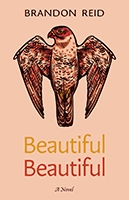 |
| Jonny Appleseed | Whitehead, Joshua | PS 8645 H5498 J64 2018 | 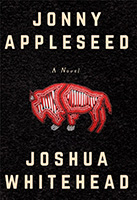 |
| Tauhou: A Novel | Nuttall, Kōtuku Titihuia | PR9639.4 .N88 2023 | 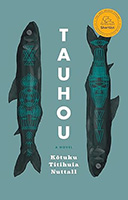 |
| River Meets the Sea: A Novel | Moorthy, Rachael | PR9199.4.M657 R58 2023 | 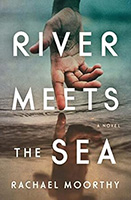 |
| Aquariums | Kurtness, J.D. | 819.33 K79.3 2022 | 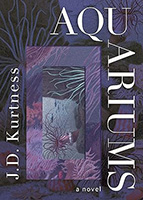 |
| God isn’t Here Today | Cunningham, Francine | PS8605.U52 G63 2022 | 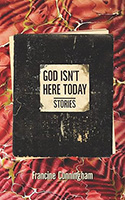 |
| Moon of the Turning Leaves | Rice, Waubgeshig | PS8635.I246 M67 2023 | 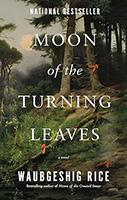 |
| The Only Good Indians | Jones, Stephen Graham | PS3560.O5395 O55 2021 | 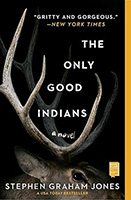 |
| Those Pink Mountain Nights | Ferguson, Jen | PZ7.1.F4853 2024 | 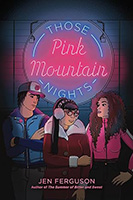 |
| A Broken Blade | Blair, Melissa | PR9199.4.B5 B76 2022 | 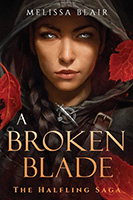 |
| The Marrow Thieves | Dimaline, Cherie | PS 8607 .I53M37 2017 | 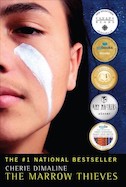 |
| Moon of the Crusted Snow: a novel | Rice, Waubgeshig | PS 8635 .I246 M66 2018 | 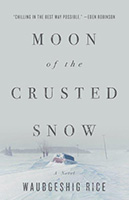 |
| Tales for Late Night Bonfires: Stories | Grisenthwaite, G.A. | PR 9199.4 .G7555 T34 2023 | 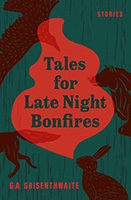 |
* Want to reserve one of these titles? Email library@alexandercollege.ca with your student # and the book title.
These e-Books are available in the online library collection. Click the title to access the resource.
A National Crime: The Canadian Government and the Residential School System
Milly, John and Mary Jane McCallum 2017
The Education of Augie Merasty: A Residential School Memoir
Merasty, Joseph Auguste and David Carpenter 2017
Medicine Unbundled: A Journey Through the Minefield of Indigenous Health Care
Geddes, Gary 2017
Barman, Jean 2019
Violence Against Indigenous Women: Literature, Activism, Resistance
Hargreaves, Allison 2017
Metis and the Medicine Line: Creating a Border and Dividing a People
Hogue, Michel 2015
Metis Pioneers: Marie Rose Delorme Smith and Isabella Clark Hardisty Lougheed
MacKinnon, Doris Jeanne 2018
Inuit Stories of Being and Rebirth: Gender, Shamanism, and the Third Sex
d’Anglure, Bernard Saladin 2018
Read, Listen, Tell: Indigenous Stories From Turtle Island
McCall, Sophie et al. 2017
Living on the Land: Indigenous Women’s Understanding of Place
Kermoal, Nathalie J. et al. 2016
Indigenous Education: New Directions in Theory and Practice
Tomlins-Jahnke, Huia, Sandra D. Styres, Spencer Lilley, and Dawn Zinga 2019
Indigenous Communalism: Belonging, healthy Communities, and Decolonizing the Collective
Smith-Morris, Carolyn 2019
Indigenous Visions: Rediscovering the World of Franz Boas
Blackhawk, Ned and Isaiah Lorado Wilner 2018
Indigenous Cities: Urban Indian Fiction and the Histories of Relocation
Furlan, Laura M. 2017
Indigenous Rights: Changes and Challenges in the 21st Century
Sargent, Sarah 2016
Indigenous Men and Masculinities: Legacies, Identities, Regeneration
Inner, Robert Alexander and Kim Anderson 2015
Keetsahnak / Our Missing and Murdered Indigenous Sisters
Anderson, Kim, Maria Campbell and Christi Belcourt 2018
Fighting for a Hand to Hold: Confronting Medical Colonialism Against Indigenous Children in Canada
Shaheen-Hussain, Samir 2020
Arrows in a Quiver: From Contact to the Courts in Indigenous-Canadian Relations
Frideres, James S. 2019
Turner, Nancy J. 2020
Tidridge, Nathan 2015
| Title | Director | Call# | Date | DVD Cover |
|---|---|---|---|---|
| Night Raiders | Goulet, Danis | Film Reserve | 2022 | 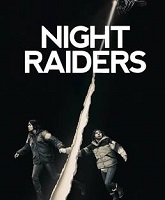 |
| Bones of Crows | Clements, Marie | DVD BON | 2023 | 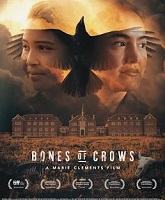 |
| Angry Inuk | Arnaquq-Baril, Alethea | DVD ANG | 2017 | 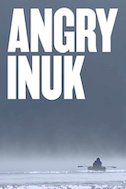 |
| Reel Injun | Diamond, Neil | DVD REE | 2009 | 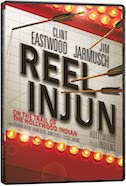 |
| Rhymes for Young Ghouls | Barnaby, Jeff | DVD RHY | 2004 | 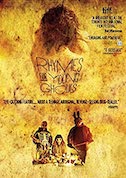 |
| Atanarjuat: The Fast Runner | Kunuk, Zacharias | DVD ATA | 2002 | 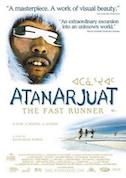 |
Stream more films by and about Indigenous peoples in Canada through NFB Campus and CBC Gem
When looking for resources related to Indigenous Studies, try some of these keywords in your searching :
e.g., Residential Schools AND Reconciliation
* Interested in learning more about using keywords for research? Check out our videos on how to create and search using keywords on our Research Skills page.
Open access resources are resources that are available to everyone for free online. Links here will lead to sites where you can download textbooks or access journals related to Indigenous Studies.
Canadian History: Pre-Confederation by John Douglas Belshaw
An open access textbook that surveys Canadian History until 1867, including a chapter on Aboriginal Canada before Contact.
This text reviews Indigenous science topics including the historical foundations and Indigenous scientific curriculum.
Book 2 covers a metaphorical study and culturally appropriate projects based on curriulumm level (e.g. high school).
Shingwauk Narratives: Sharing Residential School History by Jenna Lemay
Shingwauk Narratives consist of a series of letters from Rev. Edward F. Wilson and Rev. George Ley King, first and four principals of the Shingwauk Indian Residential School. The letters provide details about daily life at the school, and are an important resource to understand the social and political context in which residential schools operated.
Crown-Indigenous Relations and Northern Affairs Canada (CIRNAC)
Website for the department of the Government of Canada responsible for policies relating to Indigenous peoples.
National Centre for Truth and Reconciliation
Created by groups affected by residential schools in Canada, this site is the permanent home for statements, documents and other materials to share history and move forward.
A digital map of Indigenous territories all over the world.
First Peoples: A Guide for Newcomers
This guide, created by the City of Vancouver, is a short introduction to Indigenous communities in Vancouver and Canada. It was created specifically for individuals who are new to Vancouver.
Surrey First Peoples Guide for Newcomers
This is a 32-page guide launched by Surrey Local Immigration Partnership (Surrey LIP); it serves to provide information on the traditional protocols, histories, and current realities of Indigenous, Metis, and Inuit people in Canada. It was created specifically for individuals who are part of newcomer communities in Surrey.
Collection of historic and modern treaties by the Canadian government.
A searchable database of first nations, tribal councils, and reserves.
A website created by First Nations and Indigenous Studies at UBC to assist students, instructors, and the public on aboriginal topics (identity, land, government policy, culture, and more) in Canada.
Xwi7xwa Library Research Guides
A list of detailed Research Guides compiled by UBC’s Xwi7xwa Library. Xwi7xwa Library is UBC’s centre for academic and community Indigenous scholarship.
This is a free 12-lesson Massive Open Online Course (MOOC) from the Faculty of Native Studies at the University of Alberta. The course explores Indigenous histories and contemporary issues in Canada from an Indigenous perspective.
Online WLC guides can be found here. You can also book an appointment with the Writing and Learning Centre for workshops and one-on-one learning help.
Need help? Connect with a Librarian through AskAway!
AskAway ChatSimon Fraser University. (2023, September 6). Traditional territories: SFU’s land acknowledgements | SFU Library. https://www.lib.sfu.ca/help/academic-integrity/indigenous-initiatives/traditional-territory
Territorial Acknowledgements. (n.d.). Retrieved February 12, 2025, from https://www.sfu.ca/siat/programs/undergraduate/current-students/student-resources/territorial-acknowledgements.html
Xwi7xwa, L. (2024, November 25). Research Guides: Xwi7xwa – Distance Research: Doing Land Acknowledgements. https://guides.library.ubc.ca/distance-research-xwi7xwa/landacknowledgements
Xwi7xwa, L. (2025, February 7). Research Guides: First Nations and Indigenous Studies: Getting Started. https://guides.library.ubc.ca/indigenousstudies/home
Younging, G. (2025). Elements of Indigenous Style (Second). Brush Education Inc.
Page Revised March 5, 2025 by Rebecca Ardron
Alexander College acknowledges that the land on which we usually gather is the traditional, ancestral and unceded territory of the Coast Salish peoples, including the territories of the xʷməθkwəy̓əm (Musqueam), Skwxwú7mesh (Squamish), and Səl̓ílwətaʔ/Selilwitulh (Tsleil-Waututh) Nations. We are grateful to have the opportunity to work in this territory.
Alexander College acknowledges that the land on which we usually gather is the traditional, ancestral and unceded territory of the Coast Salish peoples, including the territories of the xʷməθkwəy̓əm (Musqueam), Skwxwú7mesh (Squamish), and Səl̓ílwətaʔ/Selilwitulh (Tsleil-Waututh) Nations. We are grateful to have the opportunity to work in this territory.